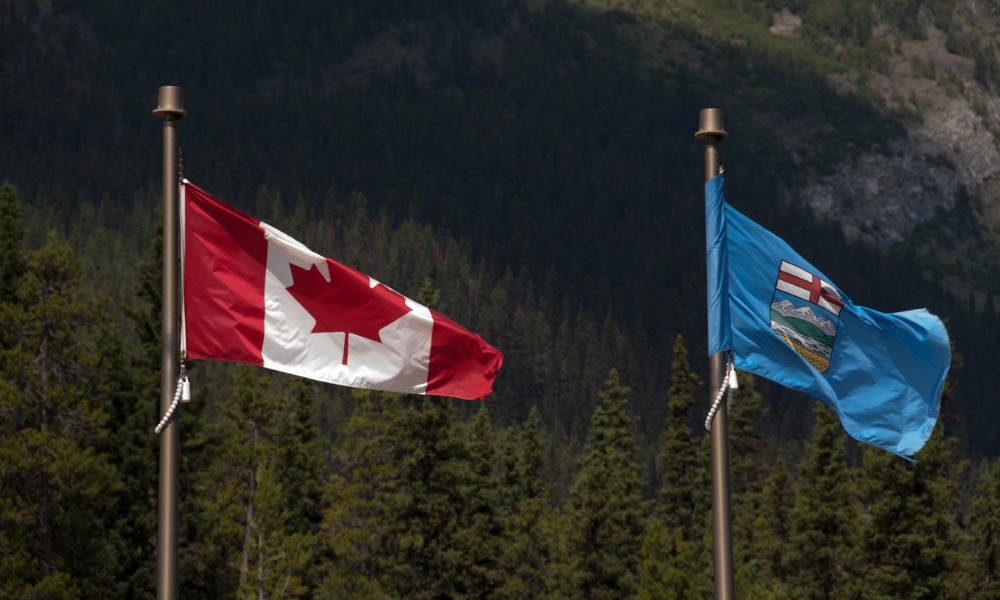Ownership of land has always been a part of life of every Canadian. As such, it is important to know the nuances of property law, and how it may affect one’s exercise of rights over property. For Albertans, one of the important statutes for this is the Law of Property Act of Alberta.
What are property rights in Alberta?
Property rights in general pertain to an owner’s right to enjoy their property, use and develop it according to their wishes, and sell or convey it to others whenever they want.
It also includes the liabilities and obligations that a property owner has been imposed with, according to their local or national law.
Protection of property rights
In Alberta, property rights are protected under common law and various federal and provincial laws. Some of these provincial laws in Alberta regarding property rights include:
- Alberta Bill of Rights: protects the right of every property owner to the enjoyment of their property, and the right to due process of law when being deprived of such right.
- Law of Property Act: provides for property rights of owners as to conveyances, partition, contracts, leases, mortgages, among others.
- Family Property Act: provides for the process of dividing the family property when a marriage or an adult interdependent relationship (AIP) ends.
- Alberta Land Stewardship Act: provides for the establishment of planning regions where a statutory plan is adopted for each region’s land use.
- Surface Rights Act: provides that a surface owner’s consent must be obtained by a resource company before they can enter a property to mine resources.
- Expropriation Act: provides for the strict process of expropriation proceedings and how property owners must be compensated when being subjected to expropriation.
It is also an intent of these laws to strike a balance between the government’s right to control land use in the province, while still respecting the rights of private landowners, and Indigenous and Aboriginal rights.
What is the Law of Property Act of Alberta?
The Law of Property Act of Alberta is the main piece of legislation that governs property rights of landowners in the province. Most of its provisions are also related to other provincial laws mentioned above.
Clarifies common law property principles
The Property Act of Alberta allows property owners to take certain steps regarding their properties in the province. This is an important aspect of the Act.
“Alberta’s Law of Property Act is a multi-purpose statue which, among other things, enacts some useful clarifications or alterations of various common law property principles,” says Garth Anderson, a partner at Blake, Cassels & Graydon LLP in Calgary, Alberta.
An example is Section 12 of the Act. “Section 12 permits conveyances of real and personal property which would otherwise not be valid at common law (such as a lease of land that a person owns to himself). Section 12 clarifies that a person may lease such land to himself and another person jointly,” Anderson says.
Anderson adds that another way the Act clarifies or alters common law property principles is Section 63. This provision, which pertains to equitable interests in land, now “clarifies that a right of first refusal to purchase land, is itself an interest in land under Section 63 of the Act.”
Recent case applying the Act
Anderson mentioned a recent case they recently handled which made use of the Law of Property Act of Alberta clarificatory provisions.
“The fairly recent acquisition by our client of The Bow office tower in Calgary was effected by way of a head lease arrangement. Following closing, the purchaser leased the property to itself and the vendor jointly for the duration of the existing anchor’s tenant lease. Both parties then jointly subleased the property to the existing anchor tenant.
“This enabled the vendor to share in the lease profit for the balance of the sublease term and enabled the purchaser to complete the acquisition at a reduced cost,” Anderson says.
Such an arrangement would not have been possible in Alberta without the clarity provided by the Act’s Section 12, as pointed out by Anderson.
Termination of co-ownership
Another important innovation in the Law of Property Act of Alberta are the legal remedies now made available to co-owners on partition and sale of land they collectively owned.
“In addition to the modernizing effect of Section 12 and Section 63, Part 3 of the Act provides a mechanism whereby co-owners of land can obtain a court order terminating the co-ownership, if necessary by ‘partition and sale’,” says Jay Geers, also a partner of Blake, Cassels & Graydon LLP in Calgary, Alberta.
Once obtained, this court order will direct that the land be sold, and the proceeds be divided appropriately between the co-owners, Geers added.
This right of a co-owner under Part 3 is subject to various conditions, such as the following:
- The court may refuse the sale of the co-owned land if the highest amount offered is less than the market value of the interest.
- The court may also order that an accounting be made, in addition to compensation for any unequal division of the co-owned land.
- The court may also refuse the grant of an order if it’s made with respect to an interest in land other than a fee simple estate.
Watch this video to know more about joint tenancy, as mentioned in Part 3 of the Act, and some of its pros and cons:
Contact any of the Lexpert-Ranked best property leasing lawyers in Alberta for questions on Alberta’s Law of Property Act.
Enforcement of mortgages and sale of land
Part 5 of the Law of Property Act of Alberta provides for the rights of a mortgagor and mortgagee with regards to the mortgaged property. This includes when a party can sue another for breaches or violations of their agreement.
However, Geers says that Part 5 places limitations on the enforcement of mortgages against individual mortgagors. “The general rule is that the only remedy of a mortgagee is to foreclose or enforce against the property, and except in certain cases (such as insured “high-ratio” mortgages), a mortgagee of a natural person is prohibited from suing to recover a deficiency if the value of the property is less than the mortgage debt.”
Principle of adverse possession
The Law of Property Act of Alberta has also undergone recent amendments. One of them is the abandonment of the principle of adverse possession when it comes to real property.
“By a recent noteworthy amendment to the Act, under Section 69.1, the principle of adverse possession (by which a person who is in open, notorious and exclusive possession of another’s land for a continuous period of at least 10 years, is deemed to be the owner of that land) was abolished in Alberta,” Anderson says.
In other words, even though a person possesses the land for more than 10 years, it would not translate into full ownership due to the principle of adverse possession’s abandonment.
Clarifies mineral rights
In relation to Alberta’s Surface Rights Act, the Law of Property Act also clarifies ownership rights and access to subsurface minerals and resources.
The Act listed what are considered as minerals that can be subject to the rights of a surface owner, such as excavation. It also states that sand, gravel, clay, and marl are generally owned by surface owners.
Know about your rights under the Law of Property Act of Alberta or any similar law in your province. Consult with the Lexpert-ranked best property leasing lawyers in Canada.





